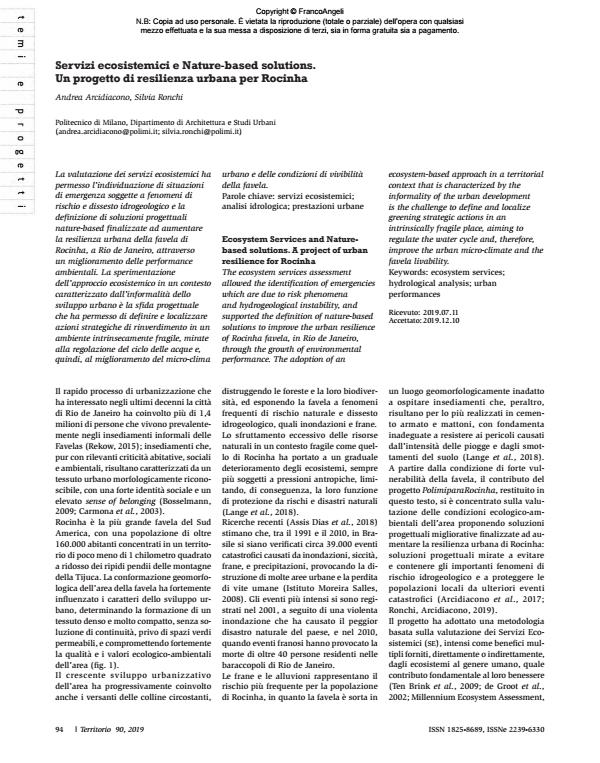Ecosystem Services and Naturebased solutions. A project of urban resilience for Rocinha
Journal title TERRITORIO
Author/s Andrea Arcidiacono, Silvia Ronchi
Publishing Year 2020 Issue 2019/90
Language Italian Pages 6 P. 94-99 File size 391 KB
DOI 10.3280/TR2019-090011
DOI is like a bar code for intellectual property: to have more infomation
click here
Below, you can see the article first page
If you want to buy this article in PDF format, you can do it, following the instructions to buy download credits

FrancoAngeli is member of Publishers International Linking Association, Inc (PILA), a not-for-profit association which run the CrossRef service enabling links to and from online scholarly content.
The ecosystem services assessment allowed the identification of emergencies which are due to risk phenomena and hydrogeological instability, and supported the definition of nature-based solutions to improve the urban resilience of Rocinha favela, in Rio de Janeiro, through the growth of environmental performance. The adoption of an ecosystem-based approach in a territorial context that is characterized by the informality of the urban development is the challenge to define and localize greening strategic actions in an intrinsically fragile place, aiming to regulate the water cycle and, therefore, improve the urban micro-climate and the favela livability.
Keywords: Ecosystem services; hydrological analysis; urban performances
- Propondo EESSGG para o desempenho da gestão urbana orientada à stakeholders: uma perspectiva teórica Donizete Beck, in Revista de Gestão Ambiental e Sustentabilidade e23099/2023 pp.1
DOI: 10.5585/geas.v12i1.23099
Andrea Arcidiacono, Silvia Ronchi, Servizi ecosistemici e Nature-based solutions. Un progetto di resilienza urbana per Rocinha in "TERRITORIO" 90/2019, pp 94-99, DOI: 10.3280/TR2019-090011